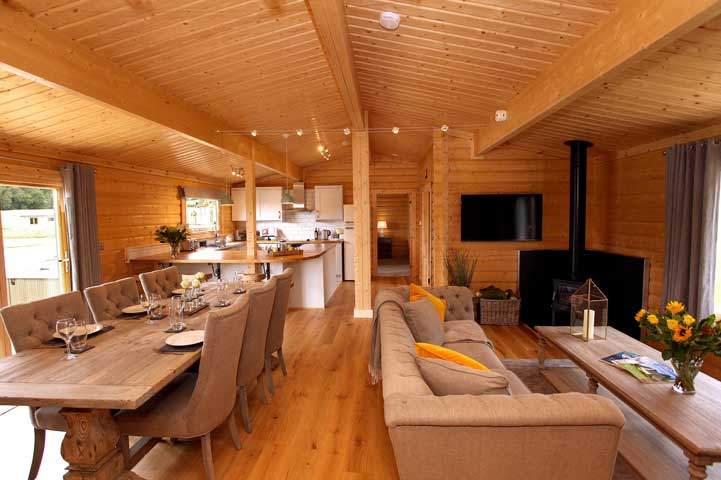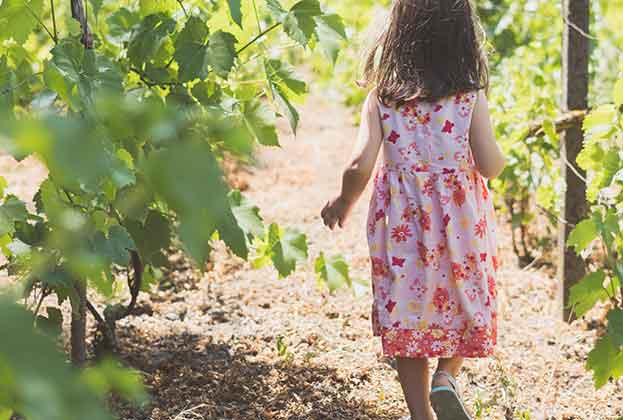There are countless ways to diversify, but as our case studies show it’s all about finding what’s best for you
TRENDING DIVERSIFICATIONS
Food and drink
During the early 2000s, consumers became more aware and interested in the provenance and safety of food, with farm to plate messages filtering through into marketing campaigns. With technological advances and the increasing use of the internet, adding value to farm produce through direct selling or farmers’ markets expanded rapidly. Improvements in technology has changed the way products are packaged and delivered and the internet continues to significantly impact consumer attitudes to the consumption of food.
A recent research report by Mintel introduces three global food trends that it believes will lead the momentum of food and drink in the months and years to come. Consumers are increasingly seeking food and drink innovations that are:
- Healthy and sustainable
- Offer healthy ageing solutions at any life stage
- Deliver upgraded convenience.
Pets
The market for kennels and catteries is well established, but people are increasingly looking for activities to do with their pets. It can be as simple as providing a secure dog walking area.
Weddings
Converted barns and country house are increasingly popular venues. According to Confetti.co.uk, the most popular wedding venues in 2019 are country houses at 22%, barn weddings at 16% and hotels weddings at 18%. This compares to Hitched.co.uk that reported that barn wedding receptions were most popular with 28% of respondents choosing a barn or farm wedding venue.
Experiences
Consumers are more interested than ever in taking on new challenges and farms are well placed to offer adventure experiences. There is an interest in planned, but flexible, activities or itineraries. Adventure play, adventure sports, wine-making, brewing and craft classes are all potential farm diversifications.
CASE STUDIES
LUXURY LODGES IN A LAKESIDE SETTING

These stylish and luxury lakeside lodges, situated in the Cambridgeshire countryside, are the brainchild of 30-year-old Charlie Alexander, who first came up with the idea for this seven-acre development when he took a farm diversification module at university.
Owned by the Alexander family, the farmland development is in a peaceful and tranquil setting yet is only 25 minutes drive from the bustling city of Cambridge. Charlie quickly realised that a spot like that was too scenic not to share and that if it was developed in the right way it could appeal to people wanting weekends or longer away. “It’s perfectly situated and we were confident that luxury log cabins in a lakeside setting would offer the ideal get-away-from-it-all holiday,” says Charlie.
Natural springs on the land were used to create the lake and Charlie then teamed up with luxury log cabin company Norwegian Log to create three bespoke lodges on the site.
His vision has seen a field become what you see today – an enchanting and stylish hideaway with a tranquil lake, offering wild swimming, and three spacious two-bedroom log cabins, complete with log burners, high-spec kitchens and private outdoor hot tubs. “We hope visitors will enjoy it as much as we do,” says Charlie. “It is the perfect place to unwind with stunning countryside views and walks galore.’ cambridgeshirelakes.co.uk
FRESH RAW MILK SOLD DIRECT TO THE CONSUMER
.jpg)
Blaise and Deborah Tomlinson farm Charnwood Forest Farm in Leicestershire with their three daughters. They milk a herd of 200 Ayrshire cows, but following a prolonged period of low milk prices in 2016 Blaise and Deborah began to think about the options to increase farm income.
“We had worked extremely hard to build the business and we didn’t want to lose the cows. We knew the key to success was to receive a premium on the milk,” says Deborah. “We did some initial research and talked to other farms with milk vending machines up and down the country.” Milk from their pedigree Ayrshire herd provides Blaise and Deborah with a high-quality niche product so they decided to sell raw milk direct from the farm. The plan was to purchase a self-service milk vending machine and position it in a wooden shed at the end of the farm driveway so that customers could buy their milk direct.
“It all sounds very simple,” says Deborah, “but in reality, a special licence from the Food Standards Agency is required and the local Environmental Health Department has to be informed.” Other points to consider include, insurance and staffing if required.
The farm has an excellent location, just off a busy main road and benefits from a large population on the doorstep, sitting between Loughborough, Leicester and several other smaller towns. Blaise and Deborah are now successfully selling 110–120 litres a day, seven days a week. Customers can fill plastic bottles or purchase their own glass bottles from the farm, which can then be reused. Payment is by card, cash or Apple Pay. The vending machine holds 200 litres of milk, which is filled up on the opposite day to the farm’s milk tanker collection.
.jpg)
Deborah also says the time factor must not be underestimated. “The key to the success of the business is ensuring not only that the milk vending machine and sales shed are kept scrupulously clean, but also the whole farm. This ensures the farm is ready for visitors and more importantly, it ensures the milk is the best it can be and reduces any risk of ill health.”
Deborah and Blaise are keen to welcome the public onto the farm. “On Open Farm Sunday around 4,500 people visit the farm, which boosts sales and is also a great way for people to learn about the milk and the cows.” Customers are attracted to the milk because it is local and a natural product.
Deborah and Blaise have added value to their business and it has helped them to secure a sustainable future. They care greatly about the welfare of their cows, the milk they are selling and on top of that they are receiving a premium for every litre of milk sold through the vending machine compared to the milk being sold directly from the farm to the dairy.
Charnwood Forest Farm, Leicestershire LE12 9XJ.
FROM CHICKEN FARMING TO WORKSHOP RENTAL
For many farmers, diversification is about adding an income stream that can be managed without too much distraction from the core business.
When David Williamson-Jones and his brother inherited the family chicken farm in Hazelbury Bryan, Dorset, and the existing tenant handed back the tenancy due to ill health, the decision was taken to convert one of the three chicken sheds into workshop rental units.
“I live an hour away from the farm, so it was important to choose a diversification that didn’t need hands-on daily management. Planning permission was granted in 2017 for change of use and the 1,000 square-metre shed was divided into 17 units,” says Williamson-Jones.
A range of local businesses now rent the workshops, including carpenters, plumbers and a classic car restorer. The capital investment of £140,000 yields a return of £45,000 a year, and they have started on the conversion of a second chicken shed.
For Williamson-Jones, a key part of the success of the workshop rentals has been taking care to choose the right tenants and then managing expectations
Savills Rural Research
While gaining permission for change of use was straightforward in this scenario, that is not always the case, says Ashley Lilley of Savills Food and Farming.
“One of the common pitfalls for diversification is underestimating the potential complexities and costs of the planning process, and the capital outlay required for the new business. Time spent in assessing and planning the project is critical; professional input is often very helpful, as is looking at a phased development rather than plunging straight in.”
A new venture often means new skills and potentially a more public-facing role. “It’s important to consider existing skills and where they would need to be added to. Similarly, not everyone is cut out to deal face-to-face with customers and the people management side of a diversification can sometimes be the most challenging aspect,” Ashley warns.
For Williamson-Jones, a key part of the success of the workshop rentals has been taking care to choose the right tenants and then managing expectations.
“We interview everyone who applies to rent a unit and make sure they feel right for us. We’ve found that, as we don’t live on-site, there’s the potential for issues with tidiness, and people parking cars where they shouldn’t, so being clear about what is allowed is important.”
northdorsetworkshops.co.uk
Read the articles within Spotlight: Farm Diversification below.
.jpg)

